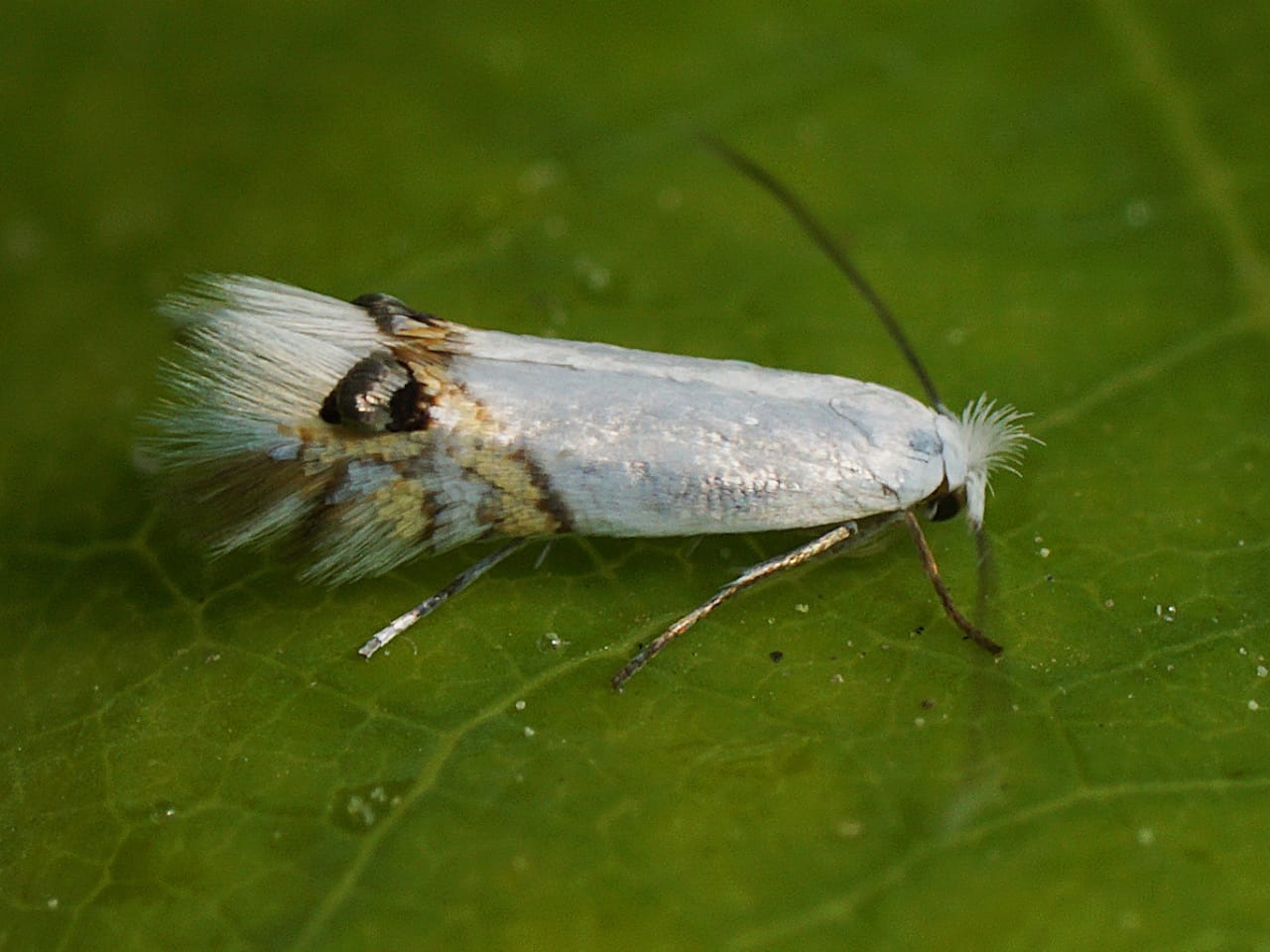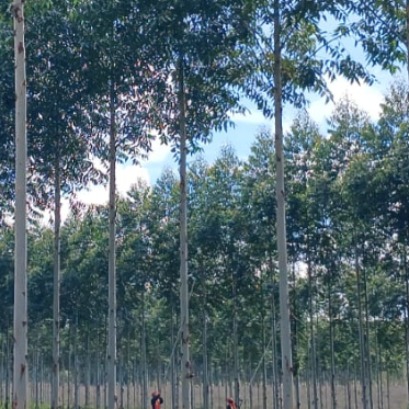
Alert for a new forest pest
Affects poplar and fruit plantations in Patagonia
It is the poplar moth (Leucoptera sinuella), an insect that could affect the production of fruit trees that are close to salicaceae curtains. INTA together with two universities in Chile, Senasa, Conicet and private sector leaders work on the identification, monitoring and management of field management tools. Its early detection is essential to prevent its spread.
The poplar moth (Leucoptera sinuella) is a leaf-mining pest, which was detected for the first time in Chile, in 2015, on curtains of salicaceae -poplars, willows-.
Its detection in Patagonia took place at the beginning of 2023, during an insect monitoring campaign carried out in northern Neuquén by entomologists Federico D'Hervé and Anabel Olave from Senasa and the National University of Comahue respectively, who reported the species to the National Surveillance and Monitoring System (Sinavimo).
Although it is a pest of foresters, in the last generations when the larvae complete their development they can affect the fruit trees surrounding the poplar curtains, which can cause rejections during fresh fruit exports.
For this reason, the Plant Health Area of INTA Alto Valle –Río Negro– together with the Pontificia Universidad Católica de Valparaíso and the Universidad de Talca –Chile–, Senasa, Conicet and private sector references work on the identification, monitoring and management of management tools in the field.
To identify the poplar moth, Silvina Garrido, INTA Alto Valle specialist, described: “Adults are small white moths whose first pair of wings has a black spot and three orange stripes. Its larvae mine the interior of the mesophyll of the leaves and their pupae are covered by a silky white cocoon with a very characteristic “H” shape.

IT MAY INTEREST YOU
 The second largest wetland in South America is located in Argentina: what is it?
The second largest wetland in South America is located in Argentina: what is it?
Argentina has national parks that place it in a unique position within South America, competing with 300 others. Which is the largest? South America is home to more than 300 national parks, but many go unnoticed. There are extensive wetlands that have been the subject of major ecological restoration projects, to coastal mountains with deep indigenous heritage. Today we tell you the case of one located in Argentina.
 Paraguay | The plantations became instruments of territorial development and the generation of decent employment, INFONA highlights.
Paraguay | The plantations became instruments of territorial development and the generation of decent employment, INFONA highlights.
Plantings in different phases, control of ants and weeds, pruning and thinning, mechanized harvest, technology applied to the field and complete integration of the production cycle were part of the CREA Forestal proposal in its Technical Update Conference – JAT Forestal 2025. The event took place on Friday, November 14, at Estancia Ñemity, located in San Juan Nepomuceno, Caazapá, where agricultural producers, technicians, contractors, students and companies in the sector met to observe the forestry business of the future in action.
 Missions | New illegal felling in the Piñalito Provincial Park in San Pedro reveals the silent expansion of deforestation in protected areas
Missions | New illegal felling in the Piñalito Provincial Park in San Pedro reveals the silent expansion of deforestation in protected areas
The advance of deforestation on protected areas was once again evident this week in the Piñalito Sur Provincial Park, in San Pedro, where the Ministry of Ecology and Renewable Natural Resources confirmed a new case of selective illegal logging. The event occurs in a context of growing concern about the fragility of the environmental control system in rural and border areas, where the scarcity of resources, personnel and logistics limits the capacity of surveillance against criminal organizations organized to steal native woods and market them on the black market in connivance with sawmill owners.





















